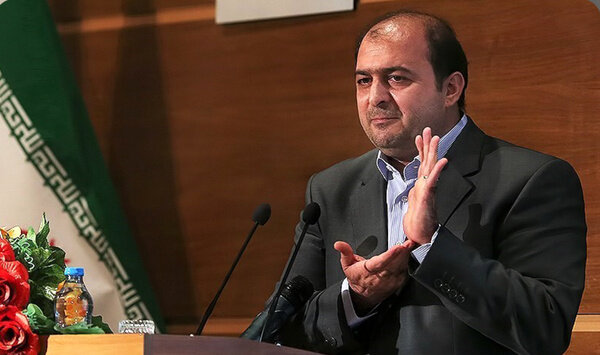
Offering of shares through 2nd ETF to start this month

Abbas Memarnejad told ILNA that the first ETF has already witnessed a noticeable growth of value, as the value of each unit of this fund has increased from 100,000 rials ($2.3) to 220,000 rials ($5.2).
He also said that the units of the first ETF can be traded at the stock market as of Wednesday.
Last week, the finance and economic affairs minister announced that the value of shares that are offered by the first exchange-traded fund had doubled.
Referring to the offering of the shares via the first ETF in the past month, Farhad Dejpasand said, “The offering was our first experience in this field. About 3.6 million persons purchased the units of shares offered by the first fund.”
On May 2, the Tehran Stock Exchange (TSE), which is the main stock exchange of Iran, listed the first exchange-traded fund (ETF) from a series of three ETFs, through them shares of some state-owned organizations and companies are planned to be offered.
An exchange-traded fund (ETF) is an investment fund traded on stock exchanges, much like stocks. An ETF holds assets such as stocks, commodities, or bonds and generally operates with an arbitrage mechanism designed to keep it trading close to its net asset value, although deviations can occasionally occur.
As described by Investopedia, ETFs can contain many types of investments, including stocks, commodities, bonds, or a mixture of investment types. An exchange-traded fund is a marketable security, meaning it has an associated price that allows it to be easily bought and sold.
The shares to be offered via the above mentioned Iranian ETFs belong to those governmental bodies defined in Iran’s privatization program, a comprehensive plan seriously followed up by the government to downsize and reduce its role in the economy.
The three ETFs are planned to offer 550 trillion rials (about $13 billion) worth of the governmental stakes, of which 165 trillion rials (about $3.9 billion) is to be offered via the first fund.
The first ETF, established by the Ministry of Finance and Economic Affairs, comprises government shares in three banks, including Bank Mellat, Tejarat Bank, and Bank Saderat, as well as the shares of two insurance companies, i.e. Iranian Reinsurance Company and Alborz Company.
The government has a 17-percent stake in Bank Mellat, a 17-percent stake in Tejarat Bank, and an 18-percent stake in Bank Saderat.


Trump weighs using $2 billion in CHIPS Act funding for critical minerals

Codelco cuts 2025 copper forecast after El Teniente mine collapse

Electra converts debt, launches $30M raise to jumpstart stalled cobalt refinery

Barrick’s Reko Diq in line for $410M ADB backing

Abcourt readies Sleeping Giant mill to pour first gold since 2014

Nevada army depot to serve as base for first US strategic minerals stockpile

SQM boosts lithium supply plans as prices flick higher

Viridis unveils 200Mt initial reserve for Brazil rare earth project

Tailings could meet much of US critical mineral demand – study

Kyrgyzstan kicks off underground gold mining at Kumtor

Kyrgyzstan kicks off underground gold mining at Kumtor

KoBold Metals granted lithium exploration rights in Congo

Freeport Indonesia to wrap up Gresik plant repairs by early September

Energy Fuels soars on Vulcan Elements partnership

Northern Dynasty sticks to proposal in battle to lift Pebble mine veto

Giustra-backed mining firm teams up with informal miners in Colombia

Critical Metals signs agreement to supply rare earth to US government-funded facility

China extends rare earth controls to imported material

Galan Lithium proceeds with $13M financing for Argentina project

Kyrgyzstan kicks off underground gold mining at Kumtor

Freeport Indonesia to wrap up Gresik plant repairs by early September

Energy Fuels soars on Vulcan Elements partnership

Northern Dynasty sticks to proposal in battle to lift Pebble mine veto

Giustra-backed mining firm teams up with informal miners in Colombia

Critical Metals signs agreement to supply rare earth to US government-funded facility

China extends rare earth controls to imported material

Galan Lithium proceeds with $13M financing for Argentina project

Silver price touches $39 as market weighs rate cut outlook

















